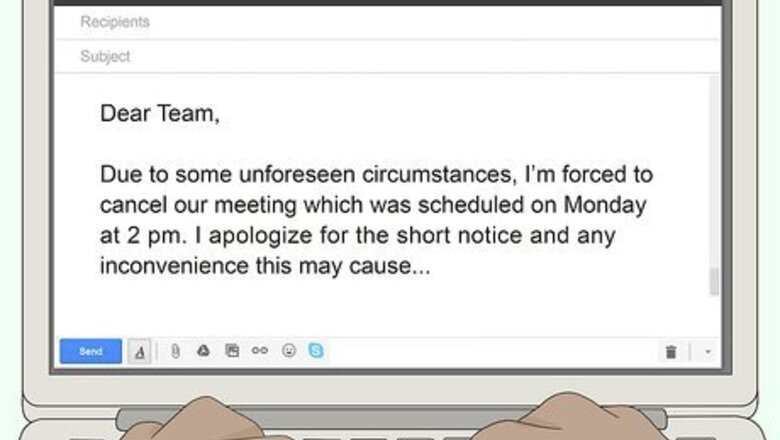
views
Cancelling a Meeting Politely
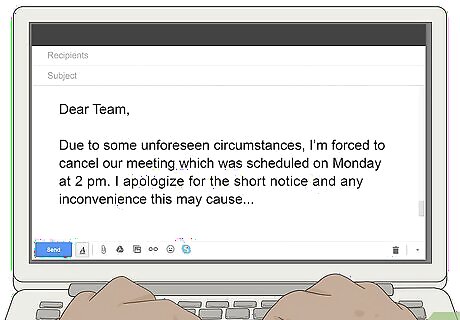
Email your apologies to cancel a meeting in advance. If you are cancelling 24 hours or more in advance, an email works well. Give as much of a heads up as you possibly can. That way, the other person can change up their schedule. If they are very busy, advance notice can make a huge difference. An email is often more efficient than a phone call since the recipient can quickly skim it in a minute or less, but you can't be sure that someone will see your message if you send it last minute. If the other person is has traveled from out of town for your meeting, make your best effort to reschedule before they go home. If they haven't arrived in town yet, try to give at least 2 days notice so they can cancel travel plans if need be.
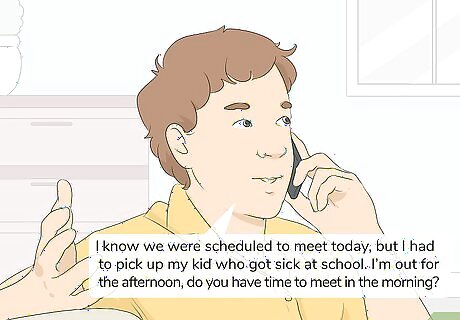
Call for a last-minute cancellation, if you can. If you are cancelling a meeting that is supposed to happen within the day, give the other person a call. Otherwise, they may not see the email before the meeting and can waste time waiting for you. Say something like, "I know we were scheduled to meet today, but I had to pick up my kid who got sick at school. I'm out for the afternoon, do you have time to meet in the morning?" If you can't make it to the phone, email as soon as you can.
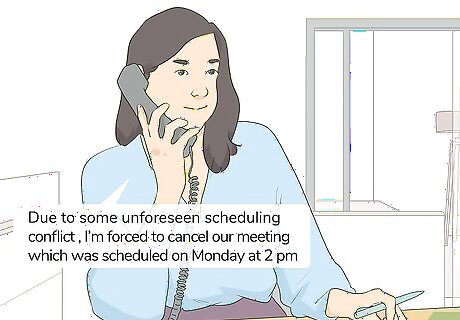
Give your reason for cancelling briefly. Cancelling a meeting often causes difficulties for others who were expecting you. It's polite to let them know why you can't make it without going into too much detail. Otherwise, they might assume that you just didn't feel like showing up. For example, saying that you are sick is enough of a reason to miss a meeting without going into the details of your illness. If another meeting or appointment came up that you can't miss, simply say that you had an unforeseen scheduling conflict come up. Ditching one meeting for another can come off as rude, so it's okay to keep the details vague.

Avoid making up excuses. If you have a valid reason to miss a meeting, it's okay to talk a little bit about it. However, if you don't have a reason, don't make one up. People will be able to tell that you're making something up and it will come off as rude. If you just aren't feeling up to a meeting, keep it general. For example: "Something personal came up and I need to reschedule today's meeting." Don't use generic excuses too often. If "something personal" comes up once a month or more, your colleagues will start to think of you as a flake.
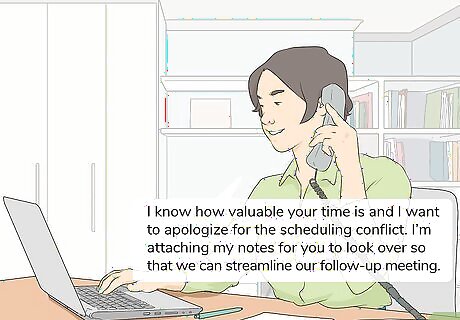
Offer a sincere apology. Cancelling a meeting will go over a lot better if you give a heartfelt apology. Tie it to the reason you are cancelling and offer to make up for the inconvenience. Try saying something like, "I know how valuable your time is and I want to apologize for the scheduling conflict. I'm attaching my notes for you to look over so that we can streamline our follow-up meeting."
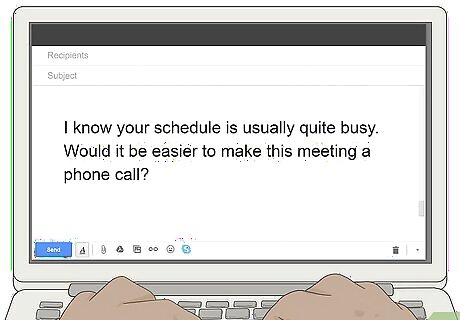
Be respectful of the other attendees' time. If there are multiple other people set to attend, be aware that cancelling the meeting entirely can cause an inconvenience for multiple people. If possible, avoid cancelling and offer another solution instead. For example, you could call in, send another member of your department to fill in, or send any relevant information you were set to contribute by email.
Rescheduling a Meeting
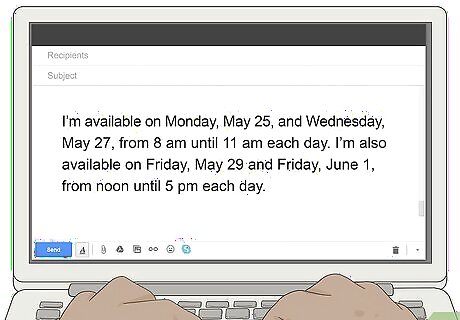
Make plans to reschedule as quickly as possible. Chances are, the meeting was scheduled in the first place to go over time-sensitive information. Come up with a convenient time to reschedule within a day or two to minimize any inconveniences.

Work around the other person's schedule as much as you can. Since you are causing a potential inconvenience, it's polite to work around the other person's schedule. However, only offer to meet when you are actually available. You don't want to have to reschedule again. Ask, "What time would be convenient for you to reschedule? I'm unavailable on Thursday afternoon, but I can make time for you in the morning or on another day."
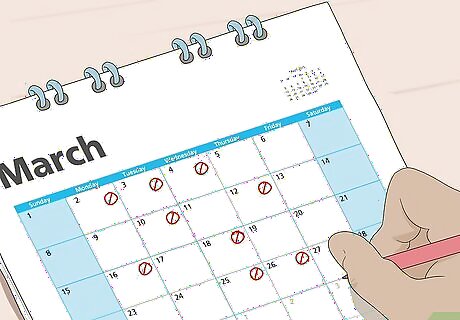
Block out time on your calendar when you are not available. To avoid headaches when you are rescheduling your meeting, block off all the time you won't be available. Then, you can clearly share possible times to reschedule without running into more conflicts. If you find that you need a little bit of down time during the day between meetings, block that out on your calendar so that people won't see you as available during that window.
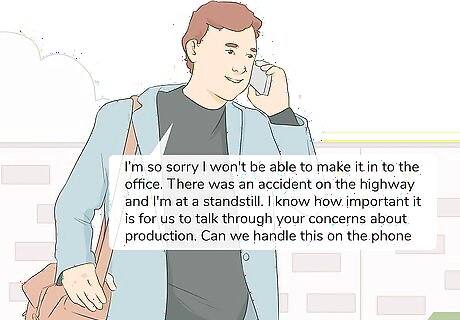
Offer to turn the meeting into a phone call. If the reason you can't make the meeting is traffic, weather, or some factor that prevents you from physically getting there, offer to make the meeting a phone call instead. Apologize for not being able to get to the meeting. Make time to follow up in person if needed. For example, say something like, "I'm so sorry I won't be able to make it in to the office. There was an accident on the highway and I'm at a standstill. I know how important it is for us to talk through your concerns about production. Can we handle this on the phone?"




















Comments
0 comment